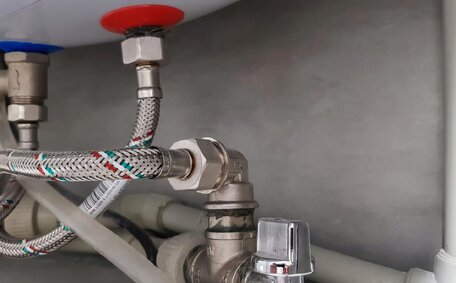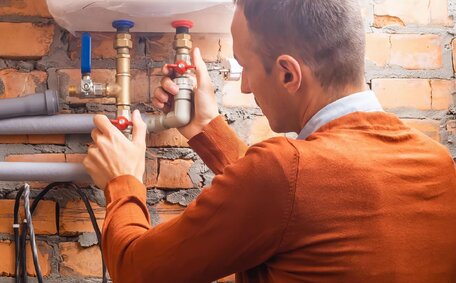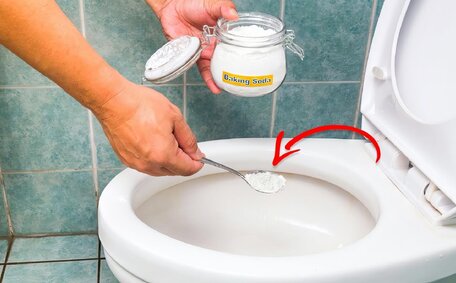Introduction to Kitchen and Bathroom Sink Plumbing
Proper function of the kitchen and bathroom sinks is essential in any household. However, they can become blocked and problematic when blockages occur. Understanding the reasons for blocked kitchen and bathroom sink plumbing empowers homeowners to address issues swiftly and effectively.
North Epping Plumbing, a respected plumbing company, specialises in clearing blocked drains in both kitchens and bathrooms. Our team of licensed and fully-insured plumbers has decades of combined experience in resolving blocked drain issues. We utilise state-of-the-art equipment and proven methods to clear even the most stubborn clogs, including those caused by tree root intrusions.
Kitchen sinks frequently grapple with cooking residues and garbage disposal use leading to heavy grease buildup, while bathroom sinks accumulate hair, soap scum, and assorted debris. We will elaborate on the specific causes and solutions in the content to follow.
The angle, size, and configuration of pipes also differ. As such, the troubleshooting approach varies.
Understanding these key distinctions allows homeowners to effectively address sink drainage issues within their home’s intricate plumbing system. Understanding proper maintenance is crucial for maintaining effective sink draining and preventing blockages. We’ll delve into managing fat and oil accumulation and provide best practice guidelines for your plumbing requirements.
Common Causes of Kitchen Sink Clogs
Kitchen sinks often face a considerable amount of debris that can result in clogs. Some of the most common culprits causing your sink can include:
- Fats, oils, and grease (F.O.G.) from cooking or washing machine residue can slowly accumulate on pipe walls, leading to blockages. As more accumulates, it restricts your drainage system and causes a blockage.
- Food waste - Particles such as coffee grounds and other solids wash into the drain and get lodged, creating a clog.
- Hair and soap scum - Hair and soap scum can accumulate around the vent pipe, becoming a mass that affects water pressure and blocks water flow.
- Foreign objects - Items like utensils, bottle caps, or paper towels mistakenly dropped down the drain can clog passages.
Being aware of how F.O.G accumulation leads to clogs can help households prevent sewer spills that occur annually. Proper kitchen sink maintenance, including the use of drain strainers and avoiding pouring grease oil down the sink, can significantly reduce the likelihood of clogs.
If you’re addressing your clogged sink in your kitchen, signs to watch out for include gurgling sounds, bad odours, slowly draining water sink, or standing water indicating a blocked sink. Our expert team can unblock your sink, ensuring your kitchen’s smooth operation, minus the frustration of clogs.
Typical Reasons for Bathroom Sink Blockages
In contrast to kitchen sinks, bathroom sink clogs typically result from:
- Hair buildup - Strands of hair washed down the drain can knot together and accumulate, blocking pipes.
- Soap scum - Residue from bathing products can coat the pipes under your bathroom sink.
- Toothpaste - Toothpaste contains abrasives that can cling to pipe interiors.
- Hard water deposits - Mineral deposits from hard water can slowly restrict your drain line.
While kitchen sink clogs generally arise from oil and grease, bathroom sink blockages are typically caused by hair, soap scum, toothpaste, and hard water minerals. Signs of why your bathroom sink blockage mirror those in kitchens, including gurgling noises, slow draining water, foul odours, and water backing up.
Our team knows exactly how to unclog all types of bathroom sink clogs without the need for a pricey call out, using specialised equipment like drain snakes. We also offer solutions to prevent recurrent clog incidents through drain maintenance services.
DIY Ways to Clear Clogged Kitchen Sinks
Taking steps to tackle plumbing issues yourself can save both time and money, possibly averting the need to call a professional. Here are a few tactics you can try: utilise some simple, effective DIY methods to unclog your sink:
- Boil a pot of water and carefully pour it down your kitchen sink drain to dissolve grease and loosen debris. You might consider following up by sprinkling baking soda down the sink, then adding vinegar.
- Using a plunger on the drain, after removing the drain stopper, is a safe method to dislodge clogs. Cover overflow holes first with a wet rag to ensure suction.
- A bent wire coat hanger is a handy improvised tool for dislodging debris within the drain. Take care not to scratch your drain pipe.
- Mix 1/2 cup baking soda with one cup white vinegar, then pour a baking soda vinegar mix down the drain. Let sit 15 minutes before rinsing with cold water.
- For a non-DIY option, apply drain cleaners as directed by the packaging to efficiently clear your sink. Steer clear of harsh chemical cleaners that could damage your delicate drain structures.
If your DIY efforts to unclog kitchen sinks fail, it’s time to call your local plumber at North Epping Plumbing - we have the latest tools and expertise to solve plumbing problems related to kitchen drain blockage quickly and efficiently.
Unclogging a Clogged Bathroom Sink
Unblocking a bathroom sink can be frustrating, but is manageable with a few DIY solutions. Here are some effective methods for unclogging a bathroom sink drain:
- Use a drain snake/auger. Carefully insert the end into the drain and twist to hook and dislodge clogs made of hair and gunk.
- Try a Zip-It tool, which uses barbs to grip and remove hair clogs from the drain.
- Remove the P-trap, the curved pipe section beneath the sink which catches debris, to clear out clogs. Unscrew it to remove clogs.
When tackling a bathroom sink blocked, take precautions against overflow messes. Place a bucket under the trap to catch water, wear gloves, and cover nearby surfaces. Make sure to work slowly to avoid scratches or pipe damage.
Combining methods, like following up a drain snake with taking apart the P-trap, can be most effective. Calling a professional plumber is advisable for severe, recurring clogs requiring specialised equipment.
Prevention is essential - cleaning your bathroom sink drains regularly helps to avoid blockages. Use hair catchers, avoid forceful flushing of solids, and pour soda down the drain mixed with vinegar monthly.
Preventing Future Kitchen and Bathroom Sink Clogs
Prevent the inconvenience of sink clogs with consistent maintenance and careful usage of both bathroom and kitchen sinks.
Kitchen sinks need special attention to prevent fats, oils, and grease (F.O.G.) from building up and causing blockages.
Use drain strainers to capture food scraps during dishwashing to prevent them from clogging the drain. Frequently Clear out strainers into the bin to avoid accumulation from going down drain. Likewise, to clear clogs, refrain from sending fats, oils or grease up down your pipes. Place fat trimmings in a container to solidify, then trash them instead.
In bathrooms, install hair catchers and clean them regularly to minimise buildup. Choose milder, soluble soaps that rinse cleanly, without leaving sticky residues behind. Limit forceful flushing of solids down bathroom sinks.
Follow up by pouring a vinegar/baking soda mixture. Let it fizz and then can react for 10-15 minutes before rinsing.
Start by boiling a pot of water; pouring it down your sink is an effective way to dissolve grease and clear minor clogs.
Alternatively, for a more eco-friendly approach, monthly use of an enzyme-based drain cleaner can gradually break down buildup. Avoid harsh chemical cleaners that corrode pipes. Data suggests enzyme cleaners work more safely over time.
Regular visual inspections can help identify and address the onset of clogs. Inspect the area under your bathroom sink regularly to ensure P-traps are properly fitted and free of leaks or blockages. Clear any visible obstructions immediately.
Be aware of early signs of clogs such as gurgling noises, unpleasant odours, or slow drainage. Tackle issues proactively to prevent major blockages, keeping your plumbing system in optimal condition. Our team provides comprehensive plumbing services, including cleaning and maintenance, to ensure your drains remain free from clogs.






